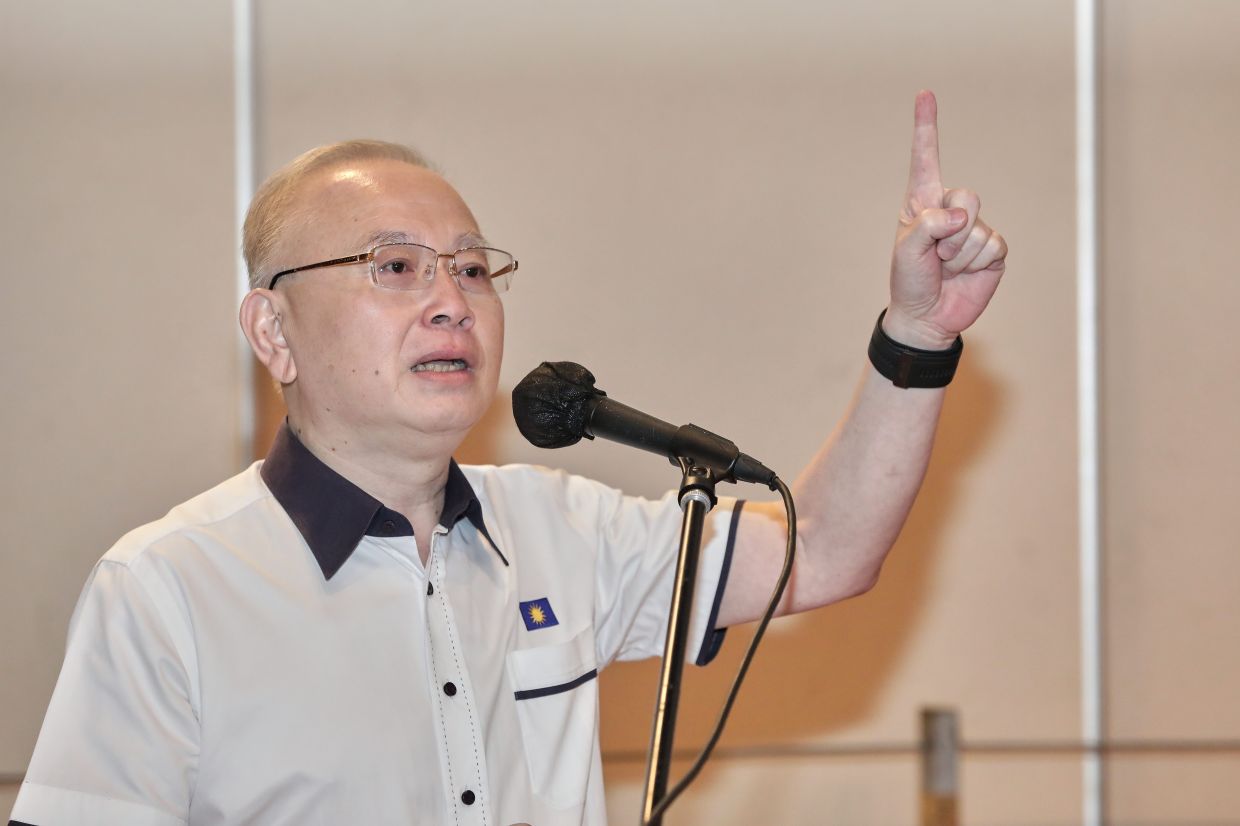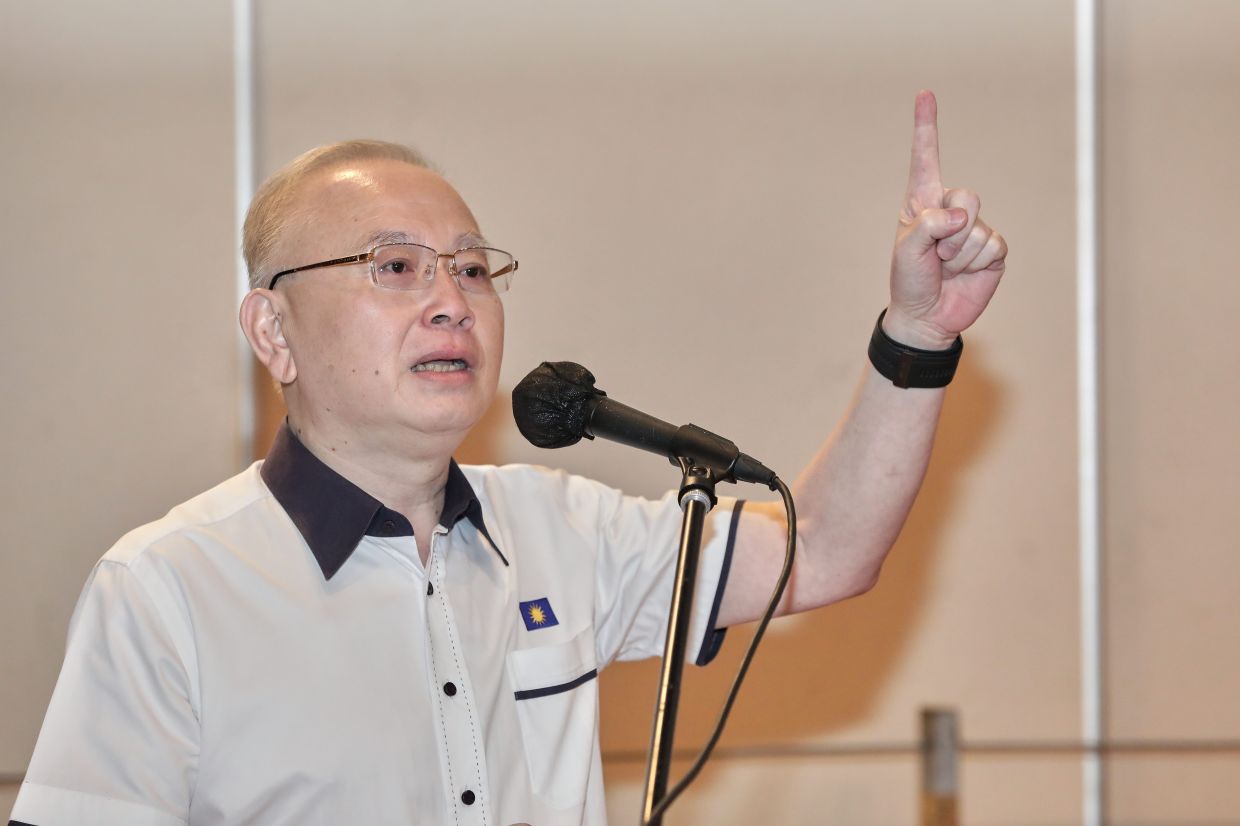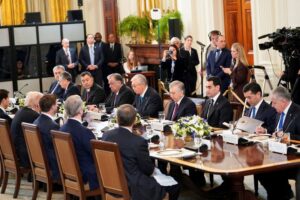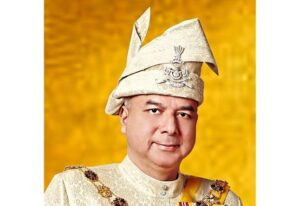
KUALA LUMPUR: MCA has begun early preparations for the 16th General Election, says party president Datuk Seri Dr Wee Ka Siong.
He said this includes conducting a stringent candidate selection process, including assessments on Bahasa Malaysia proficiency, to find the right candidates for the elections.
He said that when requesting to contest a constituency, it should not be a case of securing the seat first and only then discussing candidates.
“The right candidates must already be serving the community so that, once elections are called, we are prepared,” he said.
Dr Wee also expressed satisfaction with the proactive attitude of younger party leaders, noting their effective use of social media to voice public concerns.
Speaking at the Selangor MCA Convention at Wisma MCA on Sunday (Aug 24), Dr Wee said it was time for MCA to actively push for representation in the state assembly to ensure that people’s voices are heard.
When asked whether MCA would contest under a coalition framework, Dr Wee said the priority for now was early preparation, with any announcement to be made at the right time.
“As a political party, who wouldn’t want to contest? If we don’t, then what are we here for? We have our position and our strategy, and we will do what needs to be done,” he said.
Pressed on whether MCA was inclined to contest independently before forming alliances after the polls, Dr Wee said the party had options, but no decision had been made. “For now, the most important thing is to be prepared,” he added.
On a separate matter, Dr Wee urged public universities to focus on their core responsibilities of social mobility and nurturing local talent, rather than prioritising profit.
He stressed that Malaysians must be given priority in admissions as the number of international students in public universities continues to rise.
Citing figures from the Higher Education Ministry’s MyOHES analytic system, Dr Wee said that in 2024, public universities recorded enrolments of 30,714 students from China, 4,145 from Indonesia, 2,098 from Iraq, 1,969 from Bangladesh and 1,638 from Nigeria.
By institution, Universiti Malaya (UM) hosted 10,226 foreign students, Universiti Kebangsaan Malaysia (UKM) 8,748, Universiti Sains Malaysia (USM) 8,695, Universiti Putra Malaysia (UPM) 6,056 and Universiti Teknologi Malaysia (UTM) 4,663.
At the same time, Dr Wee acknowledged the financial challenges faced by universities.
“One vice-chancellor told me that universities only receive 61% of their requested allocation from the government, and have to find the remaining 39% themselves. Recruiting foreign students who can afford higher tuition fees becomes their survival strategy,” he said.
He pointed out that Universiti Malaya introduced an “open channel” in 2018 through its Satu pathway to strengthen financial sustainability. Students admitted through this channel are given priority access but must pay full tuition fees, in some cases equivalent to private universities. “This makes education even less accessible for the lower-income group,” he said.
As such, MCA has called for a Royal Commission of Inquiry to review and reform admission channels in public universities.






